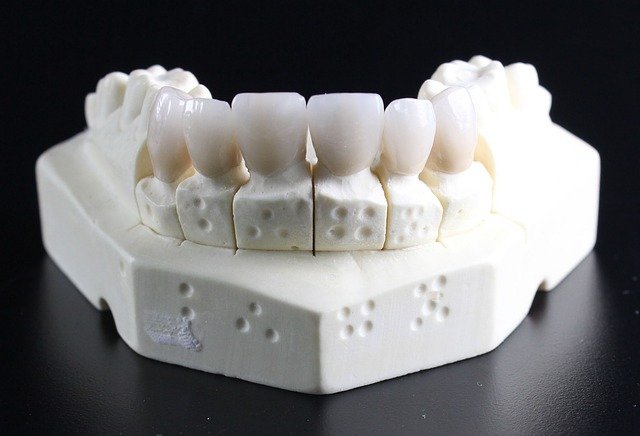
How Does a Bad-Fitting Denture Affect You?
As people age, their dentures don’t change, but their mouths do. If you have false teeth, they should fit and you should be wearing them. Proper care and regular dental visits are important factors for keeping your mouth healthy and your dentures in good shape.
There are some people who have extremely poor-fitting or poorly made dentures and are hoping for help. There are many problems with badly fitting dentures, so let’s talk about the most common issues.
Problems From Poor Fitting
With age, the gum ridges in our mouths can shrink, causing dentures to become loose. Bone can also shrink, causing jaws not to line up properly. Loose or ill-fitting dentures can cause sore spots in your mouth as well as stomach problems from not being able to chew food properly. A loose denture could also cause changes in your facial features.1
When Do Dentures Need to Be Replaced?
If your dentures are in a drawer because they just “don’t feel right”, they are loose or make sore spots in your mouth, you should see a dentist to have them evaluated and possibly adjusted, relined or remade. If the teeth in your dentures are considerably worn out, talk to your dentist about having some new ones made.
It is also important to continue with regular dental visits to make sure your teeth are fitting properly as well as to be examined for any signs of oral cancer. Your dentist can tell you how often you need to come in for check-ups.1
Why You Shouldn’t Repair Dentures Yourself?
When a dentist repairs or adjusts dentures, he uses dental materials that are made specifically for dentures and only available to dentists. Over-the-counter products usually contain chemicals that will actually harm your dentures and cause greater damage. Only your dentist should adjust or repair your dentures.1
Caring for Your Dentures
Proper care can keep your dentures and your mouth in good shape. You should brush your dentures every day with a soft-bristled toothbrush to remove food and plaque. The same goes for your gums and tongue. When you are not wearing your dentures, they should always be kept in water (not hot) or in a denture solution recommended by your dentist.1
Caring for Dentures Is Easier Than You Think
People with poorly fitting dentures are also likely to suffer from a reduced quality of life and possibly reduced self-confidence. This is because they are sometimes unable to eat in public, so their social life deteriorates, they are embarrassed to talk and smile, and they have difficulty eating and chewing.
All these problems can be improved by either new better-fitting dentures or implants. So, if you are experiencing any issues, don’t leave it too late! Get in contact with us, as we can certainly help. Common problems with ill-fitting dentures:
- Dentures move when you talk, smile, and eat
- Cannot eat certain foods
- Sores in the mouth, and it hurts to eat
- Teeth may be getting loose
- Breath smells
- Bad taste in the mouth
It’s pretty tough getting used to a plastic plate in your mouth. There will always be a learning curve in getting used to anything new in your mouth, but let us help you by making things a little easier.
Don’t Forget to Smile!
With proper care and regular dental visits, your dentures should fit well and stay in good shape for a long time. Your dentist will let you know when they need to be replaced. In the meantime, take care of your dentures, visit your dentist regularly and get out there and smile.
